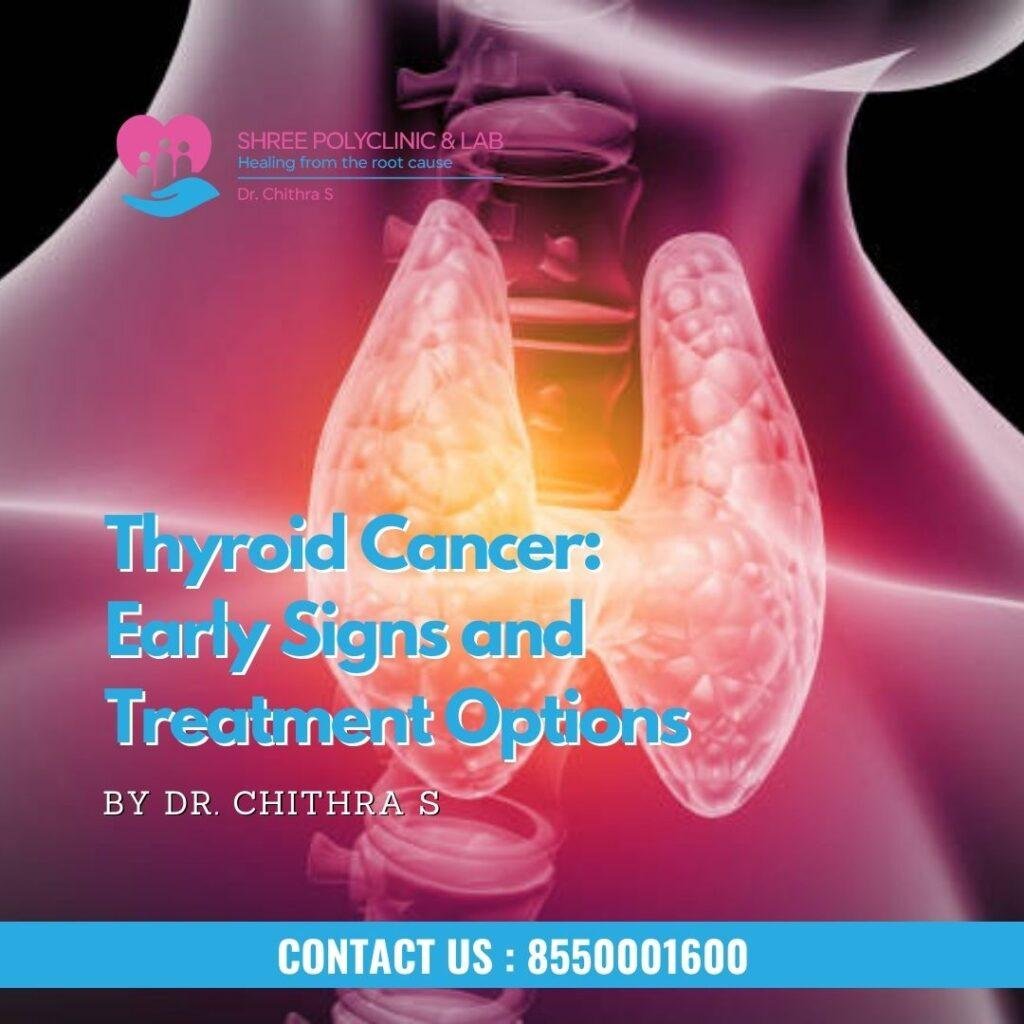Thyroid cancer is a growing health concern, with cases steadily increasing worldwide. While it is often slow-growing and treatable, early detection plays a crucial role in successful outcomes. Understanding the warning signs and available treatment options can help individuals take proactive steps toward managing their health.
What Is Thyroid Cancer?
Thyroid cancer occurs when abnormal cells grow uncontrollably in the thyroid gland, a butterfly-shaped organ located at the base of the neck. The thyroid plays a crucial role in regulating metabolism, energy production, and hormonal balance.
There are four main types of thyroid cancer:
- Papillary Thyroid Cancer – The most common type, accounting for about 80% of cases. It grows slowly but can spread to lymph nodes.
- Follicular Thyroid Cancer – Less common, but more likely to spread to other organs like the lungs and bones.
- Medullary Thyroid Cancer (MTC) – A rare type that may be hereditary and associated with other endocrine disorders.
- Anaplastic Thyroid Cancer – The most aggressive and rare form, often diagnosed at an advanced stage.
Early Warning Signs of Thyroid Cancer
Thyroid cancer may not cause noticeable symptoms in the early stages. However, some warning signs to watch for include:
✅ A Lump or Swelling in the Neck – A painless lump or nodule in the thyroid area that does not go away.
✅ Changes in Voice – Hoarseness or voice changes that persist without an apparent cause.
✅ Difficulty Swallowing – A feeling of something stuck in the throat or trouble swallowing food.
✅ Neck or Throat Pain – Unexplained discomfort in the front of the neck that may radiate to the ears.
✅ Swollen Lymph Nodes – Enlarged lymph nodes in the neck that remain swollen for weeks.
✅ Breathing Issues – Shortness of breath or wheezing due to a growing thyroid mass pressing on the windpipe.
If you notice any of these symptoms, consult a healthcare professional for an evaluation.
Diagnosis of Thyroid Cancer
Early detection is key to effective treatment. Diagnosis typically involves:
🔬 Physical Examination – A doctor checks for lumps or swelling in the neck.
🩸 Thyroid Function Tests – Blood tests to assess thyroid hormone levels.
📸 Ultrasound Imaging – Helps determine the size, shape, and nature of thyroid nodules.
💉 Fine Needle Aspiration Biopsy (FNAB) – A small sample of thyroid tissue is examined for cancer cells.
🛑 CT Scan or MRI – Used for advanced cases to check if cancer has spread beyond the thyroid.
Treatment Options for Thyroid Cancer
The choice of treatment depends on the type and stage of thyroid cancer. Common approaches include:
1. Surgery
✂ Thyroidectomy – Partial or complete removal of the thyroid gland is the most common treatment.
✂ Lymph Node Removal – If cancer has spread, nearby lymph nodes may also be removed.
2. Radioactive Iodine (RAI) Therapy
☢ Used after surgery to destroy any remaining thyroid cells and prevent recurrence.
☢ Especially effective for papillary and follicular thyroid cancers.
3. Hormone Replacement Therapy
💊 Since the thyroid regulates hormones, patients who undergo thyroidectomy need lifelong thyroid hormone replacement to maintain metabolism and prevent recurrence.
4. External Beam Radiation Therapy
🔦 Used for aggressive or advanced thyroid cancers that do not respond to RAI therapy.
5. Targeted Drug Therapy & Chemotherapy
💊 Targeted drugs block cancer cell growth, while chemotherapy is used for aggressive types like anaplastic thyroid cancer.
Prognosis and Prevention
✔ Early-stage thyroid cancer has an excellent prognosis, with a high survival rate of over 90%.
✔ Regular neck self-exams and routine check-ups help in early detection.
✔ A diet rich in iodine and maintaining a healthy lifestyle may lower the risk.
Conclusion
Thyroid cancer is often treatable, especially when detected early. Paying attention to warning signs, undergoing regular screenings, and seeking timely medical intervention can make a significant difference in recovery. If you have concerns about thyroid health, consult a doctor for personalized advice and screenings.
👉 Stay informed, stay proactive, and take charge of your thyroid health!

